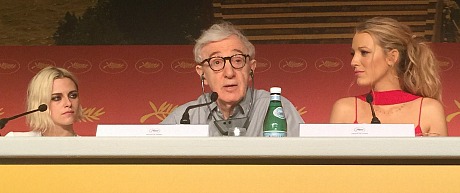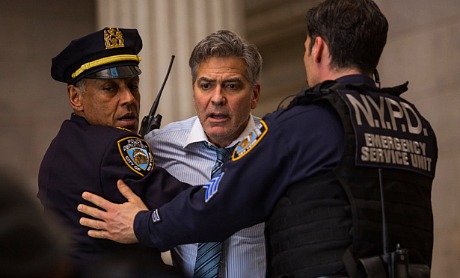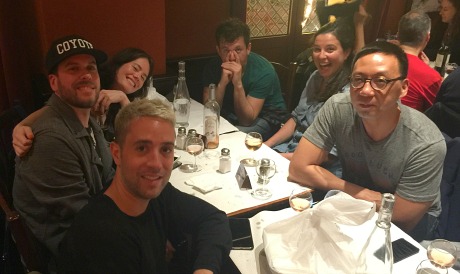During this afternoon’s Money Monster press conference I asked director Jodie Foster if her film is advancing a Bernie Sanders narrative, which is definitely my opinion as well as that of two journalist pals. She didn’t deny it, but she answered along the lines of “you guys figure it out.” There’s nothing to figure. Money Monster is even more of a Bernie advertisement than was Michael Moore‘s Where To Invade Next?, and that doc had Bernie’s DNA all over it.
Having seen it this morning, I can add that while it’s not a great film, it’s a fairly successful attempt to blend a situation suspense thriller with a leftie high-concept drama, the concept being the usual-usual (i.e., we live in a elite-favoring rigged economy, your average finagling Wall Street sociopath is no better scruples-wise than Tony Montana or Al Capone).
It’s well cut, well organized, well acted as far as the screenplay allows, etc. As long as you go into it with the knowledge that it’s not an earth-shaking melodrama, you’ll be fine with it. Or, you know, it won’t piss you off.
Before this morning’s Money Monster screening my attitude was “please don’t suck,” and to my slight surprise it turned out not to. I was once again reminded that there’s room in the world for films like this — films that point fingers and cut through the b.s. and try to say something more than just “buy more popcorn.”
I’ve sensed from the get-go that Money Monster is more or less Costa-Gavras‘ Mad City (’97), another hostage drama with a despondent sad sack protagonist (John Travolta) whose path ends in tragedy. It more or less is that. I’m now thinking about streaming Mad City just to see how it plays.
Regarding the press conference video: You know the talent is only seconds away when you see those blue-white strobe flashes reflected on the wall of the entranceway.
















